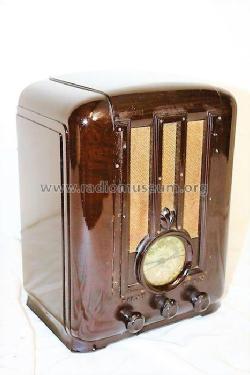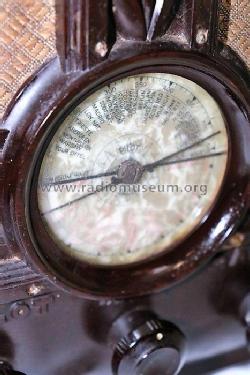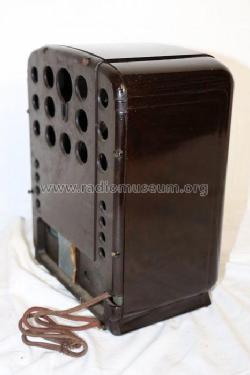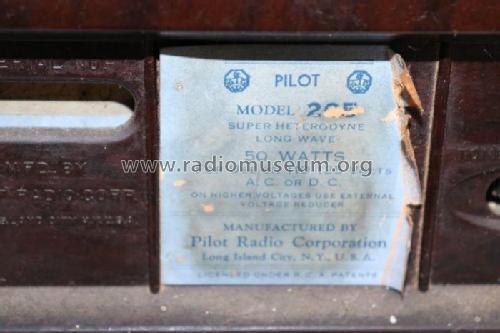- Country
- United States of America (USA)
- Manufacturer / Brand
- Pilot Electric Mfg. Co. (Radio Corp.); Brooklyn (NY)
- Year
- 1936
- Category
- Broadcast Receiver - or past WW2 Tuner
- Radiomuseum.org ID
- 51777
-
- alternative name: Pilot Radio & Television || Pilot Radio and Tube || Pilot Radio Corporation
Click on the schematic thumbnail to request the schematic as a free document.
- Number of Tubes
- 5
- Main principle
- Superheterodyne (common); ZF/IF 456 kHz
- Tuned circuits
- 6 AM circuit(s)
- Wave bands
- Broadcast (MW) and Long Wave.
- Power type and voltage
- AC/DC-set / 115 / 220 / 240 Volt
- Loudspeaker
- Electro Magnetic Dynamic LS (moving-coil with field excitation coil) / Ø 5 inch = 12.7 cm
- Power out
- 1 W (unknown quality)
- Material
- Bakelite case
- from Radiomuseum.org
- Model: 205 [76 tube] - Pilot Electric Mfg. Co. Radio
- Shape
- Tablemodel, Tombstone = decorative upright, not cathedral but can have rounded edges.
- Notes
- Export model for Europe.
The tube lineup is well documented in Riders. Nevertheless there are models existing which use a 75 tube (see there).
- External source of data
- Ernst Erb
- Source of data
- The Radio Collector's Directory and Price Guide 1921 - 1965
- Circuit diagram reference
- Rider's Perpetual, Volume 7 = 1936 and before
- Other Models
-
Here you find 544 models, 271 with images and 408 with schematics for wireless sets etc. In French: TSF for Télégraphie sans fil.
All listed radios etc. from Pilot Electric Mfg. Co. (Radio Corp.); Brooklyn (NY)
Forum contributions about this model: Pilot Electric Mfg.: 205
Threads: 1 | Posts: 1
To get optimum search I put the obviously identical models 205 (75 tube) and X205 together. Now both ways to search will arrive at the model "205 (X205)". And the model with 76 tube is also clearly defined.
To use early and late would not help. A collector looking for info in RM would never find such a hint on his radio. In our case here the tubes are unambiguous means to discriminate.
In addition "early" and "late" as found in some Sylvania Service notes are in doubt insofar, as both versions are noted for the same year 1936 (Riders vs. Machine Age).
To use early and late would not help. A collector looking for info in RM would never find such a hint on his radio. In our case here the tubes are unambiguous means to discriminate.
In addition "early" and "late" as found in some Sylvania Service notes are in doubt insofar, as both versions are noted for the same year 1936 (Riders vs. Machine Age).
Konrad Birkner † 12.08.2014, 19.May.07




